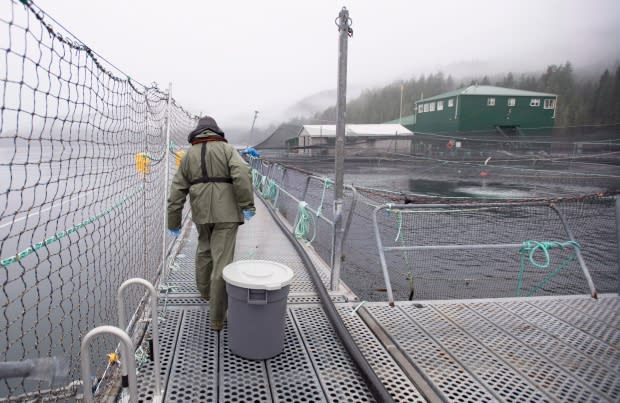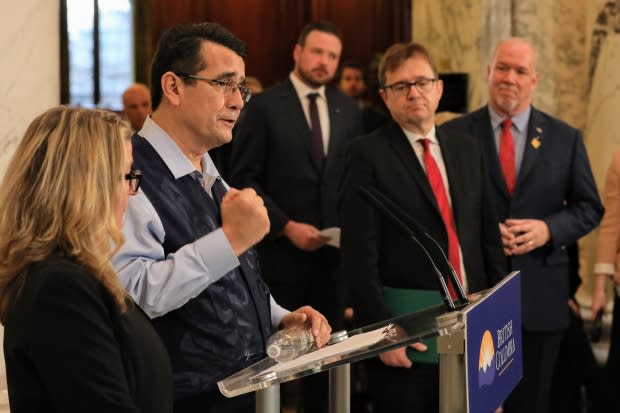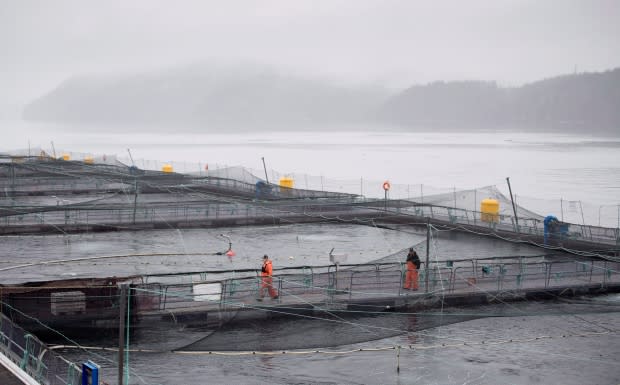17 fish farms to be phased out under new agreement between B.C. government, First Nations
Seventeen open-pen fish farms in B.C.'s Broughton Archipelago will be phased out by 2023 under a new agreement between First Nations and the provincial government, the premier announced Friday.
The decision is part of a set of recommendations reached through a government-to-government consultation between the province and the Kwikwasut'inuxw Haxwa'mis, 'Namgis and Mamalilikulla First Nations.
Premier John Horgan said the "orderly transition," beginning in 2019, will ensure economic certainty for the industry while working to protect the health of wild salmon in the archipelago — a key migratory route for wild salmon off northeastern Vancouver Island.
"Our governments have come together to help revitalize and protect wild salmon, and provide greater economic certainty for communities and local workers," Horgan said in a statement.
The fish farms that will be phased out represent nearly all of the aquaculture sites in the region. Three other sites outside the territory of the First Nations involved are not included in the recommendations.

The recommendations have also been agreed to by the two aquaculture companies that operate in the area: Cermaq Canada and Marine Harvest Canada.
The latter has run farms in the area for 30 years. In a statement, the company said "there are no changes to employment anticipated at this time."
Currently, there are up to 600 people working on fish farms in the Broughton area. Both companies said they don't expect major job losses, as they move production to other areas.
Some farms will be immediately decommissioned, but others will remain open for between two and four years. Ten of the 17 will have shut down by 2022.

The agreement also calls for the establishment of a "farm-free migration corridor" in the short term to help keep wild salmon in the Broughton Archipelago area from harm.
Chief Bob Chamberlin, elected chief councillor of the Kwikwasut'inuxw Haxwa'mis First Nation, described Friday's announcement as "critical to Canada's development."

In a statement, Minister of Fisheries and Oceans Jonathan Wilkinson said he and the Department of Fisheries "commend" the work put into the deal.
"We look forward to reviewing their recommendations regarding land tenures for existing aquaculture sites in the Broughton Archipelago and working with the province of B.C. and other parties going forward," Wilkinson said.
First Nations to lead inspection, monitoring
The plan also includes room for the aquaculture companies to gain consent from the First Nations to continue operations beyond 2023.
A First Nations-led monitoring and inspection process will also be developed to oversee the farms during the transition.
In June, the nations signed a letter of understanding with the province.
It laid out that decision-making power about the future of fish farm tenures and salmon aquaculture in the Broughton Archipelago will be shared between three First Nations and the provincial government.

